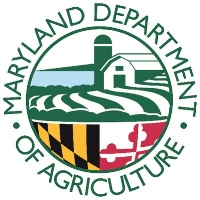Maryland Department of Agriculture
/The Maryland Department of Agriculture (MDA) is celebrating its 10th year as a designated official agency. Headquartered in Annapolis and with five service points mostly on the Chesapeake Bay’s Eastern shore, MDA is proud to assist Maryland’s grain producers and handlers market their grain.
After the export elevators at the Port of Baltimore closed and GIPSA closed its field offices, producers and handlers were forced to obtain services from GIPSA’s Toledo field office which was expensive and thus hampered their ability to fully market their grain. To address this concern the State requested to become designated to provide official inspection and weighing to Marylanders.
While the State had some of the necessary equipment and had provided some unofficial analysis on a limited basis, they had no one ready to become licensed and operate the program. Through a confluence of circumstances, the State realized that John “Mack” Manis, a retired GIPSA employee with a vast knowledge of official grain inspection and weighing was working for the state’s Occupational Safety and Health Division. Mack agreed to transfer to the Department of Agriculture and launch the program.
Mack credits GIPSA’s Toledo Field office for all their assistance to get the State in the position to provide service. Although the local grain handlers had requested the State provide the service, the State only received one request for a container booking in the first year. The grain inspection program is within the State’s Food Quality Assurance Program which provides inspections on a vast array of products produced in Maryland, so Mack found himself assisting in these programs while awaiting additional requests for service.
Each subsequent year the State would receive a few more container booking requests and some crop insurance samples to inspect. For the first seven years Mack was the sole licensee for the State. About three years ago a major grain user and handler began to regularly export containers from the port of Baltimore and locations on the eastern shore. Two other major grain companies soon followed. Now the State has six sampler/weighers and an additional inspector to handle the workload, which usually occurs between October and March. When not sampling grain, these employees inspect other products, such as, shell eggs under an agreement with the Agricultural Marketing Service.
Mack is quick to point out that each of the locations that they serve were new to container inspection and most had never received official service on site. This required extensive problem solving on everyone’s part to ensure that all the GIPSA requirements were met. Some locations initially wanted each container inspected, however once they became confident in the grades from the State they began using composite samples which made the workload more manageable.
Soybeans are the primary grain inspected, although some corn is inspected. The State does receive occasional requests to inspect Soft Red Winter wheat and sorghum. These samples are sent to the Kansas Grain Inspection Service utilizing an agreement between the agencies. Maryland appreciates the assistance provided and is proud to be part of the official inspection system that assists each other to provide official inspection and weighing to producers and handlers nationwide.
The State has graded around three to four thousand samples per year in recent years. This year the State is expecting to inspect around half of that amount. A reduction in exports coupled with the opening of a large soybean facility in nearby Pennsylvania is thought to be cause for the reduction.
For MDA it is all about helping Maryland grain producers and handlers market their grain. They receive calls weekly from Marylanders interested in how they can better market their grain. Although many of these calls do not lead to inspections the State is always excited to explain all the requirements and try and find a way to help their constituents. MDA is thankful for the help they have received in establishing and maintain their inspection program, and proud that they can assist those producing and handling grain within the State of Maryland.


